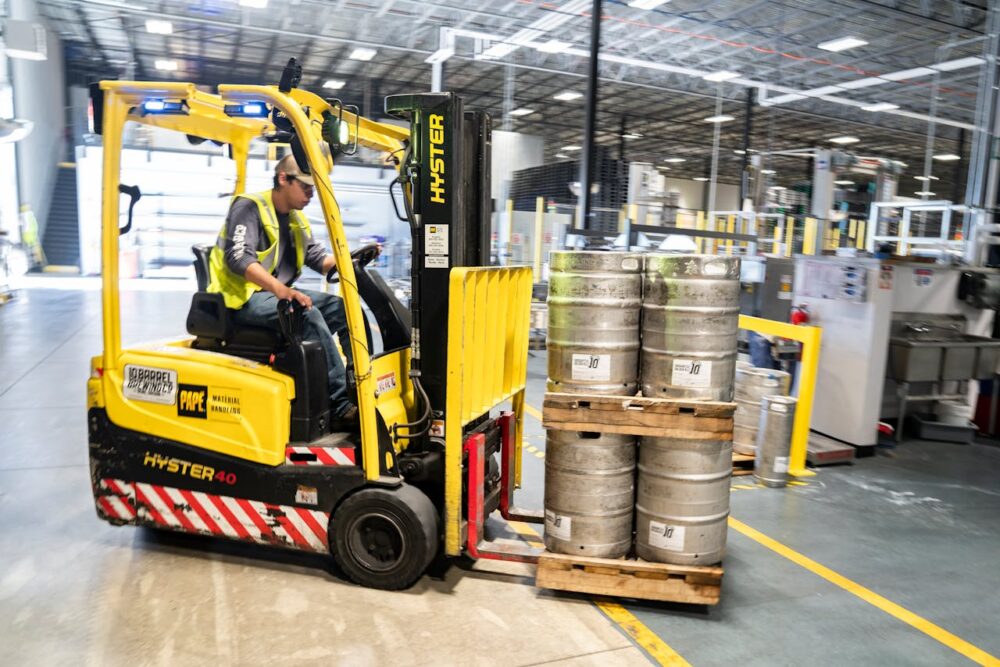The Productivity Paradox: Why Meaningful Work is the Key to Mental Well-Being
Today, we are more knowledgeable than ever, yet we are also the most mentally unwell generation in history. The paradox is clear: despite having access to infinite information and tools to “work smarter, not harder,” many people feel lost, anxious, and unfulfilled. We’ve become masters of consuming content but not necessarily of creating, building, or doing. And in that gap lies a fundamental truth—productivity, not just work, is essential for happiness.
But not just any productivity. Meaningful productivity. The kind that enhances personal growth, sharpens skills, and gives us a sense of purpose. The kind that, even when it doesn’t immediately lead to success, still makes us better, stronger, and more resilient.
Let’s explore why productivity is essential for mental well-being and how shifting our mindset from passive consumption to active creation can change everything.
The Information Overload Epidemic: Why We’re Stuck
We live in an era of constant stimulation. Social media, news, videos, and podcasts provide endless streams of information, making us feel like we’re always learning. But the reality is, passive consumption does not equal progress.
A study published in the Journal of Computer-Mediated Communication found that passive social media use—such as mindlessly scrolling through feeds—correlates with higher levels of anxiety and depression. Instead of making us happier or more connected, it often leads to feelings of inadequacy, comparison, and wasted time.
This is the trap: we feel busy, but we’re not productive. We’re consuming, not creating. And over time, that stagnation takes a toll on our mental health.
The Link Between Productivity and Mental Well-Being
There is a strong connection between productivity and mental health. According to Psychology Today, studies have consistently shown that people who engage in meaningful work—whether in their careers or personal projects—experience lower rates of depression and higher life satisfaction.
Why? Because productivity fosters a sense of accomplishment and progress. When we complete something—whether it’s writing a blog, building a business, or simply organizing our home—we gain a sense of control and purpose. It reminds us that we can make an impact, even if it’s just in our own lives.
On the other hand, inactivity and passivity often lead to rumination, anxiety, and feelings of worthlessness. When we’re not engaged in something meaningful, our minds tend to drift into negative self-talk, dwelling on problems instead of solutions.
The Illusion of Overnight Success: Work, Work, Work, Then the Breakthrough
We live in a world that celebrates the idea of overnight success, but in reality, success is a product of consistent, deliberate effort over time.
Behind every “instant” success story is years of unseen work. People who achieve breakthroughs—whether in business, sports, or creative fields—do so by showing up every day, even when there are no immediate results.
The real value of productivity isn’t just in achieving external success. It’s in the personal growth that comes from the work itself. When we work at something repeatedly, we become better, stronger, and more resilient. And that process—of getting better—becomes its own reward.
Even if external success never arrives, the journey of improving ourselves makes life meaningful.
Breaking Free: How to Shift from Passive Consumption to Active Productivity
If we know that productivity leads to happiness, how do we break free from the cycle of passivity and information overload?
Here are some actionable strategies:
- Limit Passive Content Consumption – Set time limits on social media and passive entertainment. Instead of watching five hours of YouTube, use that time to create something, even if it’s just journaling or brainstorming ideas.
- Commit to a Daily Productivity Habit – Whether it’s writing, exercising, learning a new skill, or working on a side project, set a goal to do something productive every day. Even 30 minutes a day can add up to significant progress over time.
- Focus on Process, Not Just Outcomes – Instead of only measuring success by external results, measure progress by personal improvement. Did you learn something new today? Did you improve in some way? That’s a win.
- Find Purpose in What You Do – Productivity doesn’t have to mean work. It can be gardening, creating art, volunteering, building something, or even just deep conversations with loved ones. The key is to engage in meaningful activity that enriches your life.
- Stay Physically Active – Exercise isn’t just about fitness; it’s one of the most effective ways to improve mental health. Movement boosts dopamine and serotonin, the brain’s natural happiness chemicals, and makes you more motivated to engage in productive tasks.
- Seek Community and Collaboration – Productivity doesn’t have to be a solo journey. Find like-minded people, join groups, or collaborate with others who share your passions and drive. Surrounding yourself with productive people makes it easier to stay motivated.
Conclusion: The Joy is in the Work Itself
In a world obsessed with shortcuts and instant gratification, we often overlook a fundamental truth: happiness is found in doing meaningful work, not in avoiding it.
True fulfillment comes not from consuming endless streams of information, but from actively engaging in something that makes us better. Whether or not that effort leads to conventional “success” is secondary. What matters is that you grow, improve, and find joy in the process.
So, the next time you find yourself stuck in a cycle of scrolling, watching, or consuming—pause. Instead, ask yourself: What can I create today? How can I make myself better? The answer to that question may just be the key to a happier, more fulfilled life.

